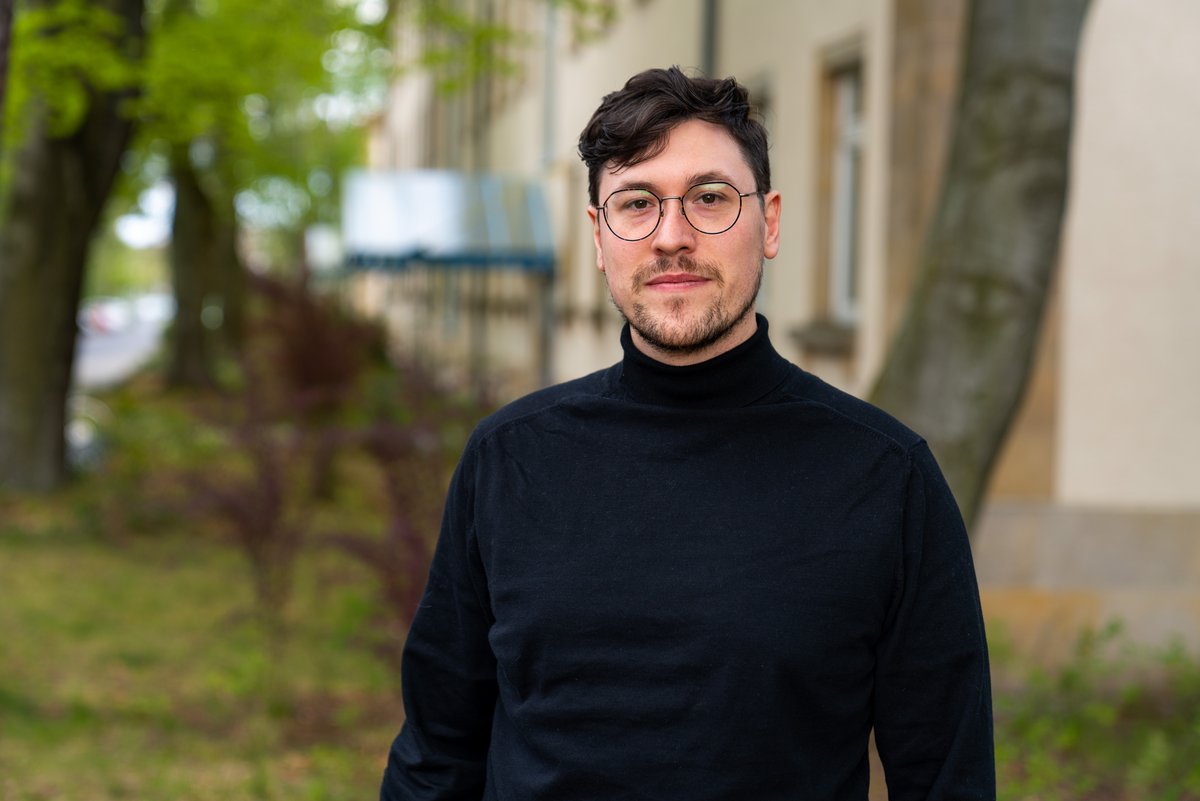Exploring Human-Computer Interaction: The Focus of a New Junior Research Group
Dr Marius Klug, since April you have been the head of the first »Young Investigator Group« at our university in Cottbus. You work closely with Professor Thorsten O. Zander's Department of Neuroadaptive Human-Technology Interaction. What topic is the Young Investigator Group researching?
I am very happy about this great opportunity. The group is researching »Physiological User Interfaces for Virtual and Augmented Reality«. Essentially, we are focused on intuitive interactions with virtual worlds.
Our brain constantly sends out signals that we can measure with the help of electrodes in electroencephalography (EEG). However, the same applies to the rest of the body: eye movements, muscle activity, our heart, or the conductivity of our skin can be measured. The signals from the eyes, muscles, or skin can be used to control virtual reality. For instance, it is possible to adjust the environment to the user's mental state automatically or to exercise direct control of a virtual avatar through our body or mind.
Will we soon be able to read minds?
No, we can't read minds in the process, of course, but we can capture primary cognitive states such as stress, surprise, or the assessment of an event as a mistake. We can also capture muscle activity and determine what the users are looking at. Combining these measurement methods with the flexibility and adaptability of virtual realities opens new possibilities for experiences that would otherwise be impossible to encounter. For example, in VR, magical abilities can be linked to actual mental states such as mental focus or focused attention. A virtual avatar with wings can be controlled by our back muscles, or help texts can be faded in or out as needed.
What are the goals of the Young Investigator Group – Intuitive XR?
Specifically, we aim to achieve three primary goals:
First, we will investigate the optimal compatibility of different electrode technologies with VR glasses. This includes applying and refining data analysis methods, AI algorithms for classifying various mental states, and developing a toolbox for 3D engines in game development that facilitates the easy application of our research.
Secondly, we will directly incorporate these methods into various innovative demonstration applications, such as virtual magic, avatar control, or adaptive environments. We place a strong focus on the usability of the technologies and the psychological-cognitive effects of these interfaces.
Lastly, we aspire to transcend the research phase and bring these technologies into the »real world«. Through collaborations with companies, we seek to transfer knowledge into the economy and bolster Lusatia's position as a technology hub.
About Dr Marius Klug
Dr Marius Klug studied cognitive science in Tübingen and moved to Berlin in 2016 to do his doctorate in the field of mobile brain research with Prof. Klaus Gramann at TU Berlin. There he dealt extensively with EEG analysis methods and got to know VR as an experimental method. At the same time, he worked on the practical application of EEG as a brain-computer interface, as Professor Zander was also doing postdoctoral research at the same chair at the time.
About the Young Investigator Group Intuitive XR of the BTU
To promote excellent and internationally experienced young scientists, the BTU has established a new junior research group within the Graduate Research School (GRS). Titled »Intuitive XR«, this group will consist of three scientists from various fields, such as cognitive science or human factors, who will focus on researching human-computer interaction in the future. The Young Investigator Group was internationally announced in 2022 and selected through a competitive process involving external experts from renowned research institutions. Initially, funding will be provided for a period of 3 years. After 2.5 years, an interim evaluation will be conducted, and if approved, the principal investigator will have the opportunity for final funding for an additional two years. This funding aims to support the academic career development of outstanding young researchers at BTU. Alongside the position of the head of the Young Investigator Group, the grant includes two doctoral scholarships for a duration of 36 months and material expenses. One doctoral scholarship has already been approved, and another scholarship is expected to be awarded in the summer.

